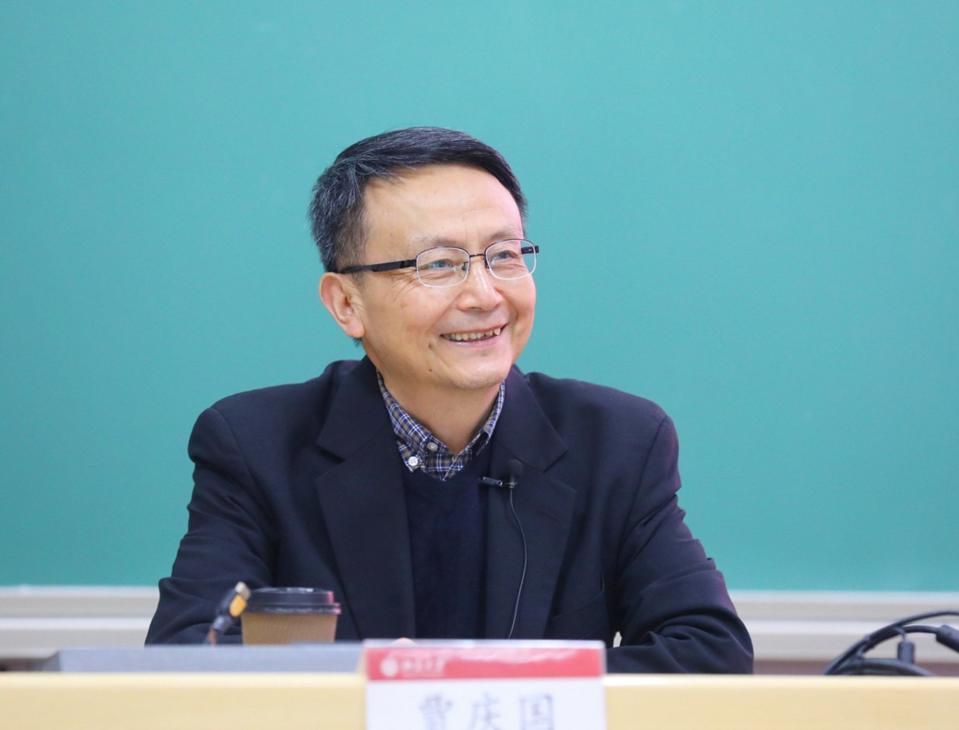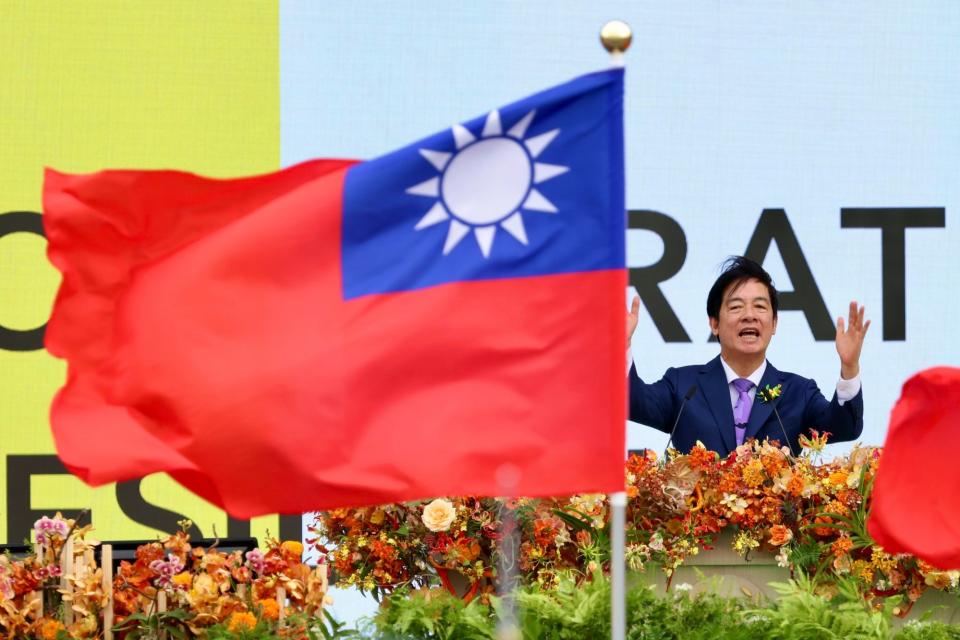Why a Trump election win could mean new uncertainties and 'very confrontational' China-US relations
China has open communication channels with US President Joe Biden's administration to manage sticky issues, but bilateral ties could become more "confrontational" if former president Donald Trump is re-elected, according to a top Chinese international relations expert.
In an exclusive interview with the Post, Jia Qingguo, a professor and former dean of Peking University's school of international studies, said the existing working group mechanism between the two countries had allowed them to address their differences, but Trump could impose tougher policies, including possible challenges on one-China.
Biden, who will face a rematch with Trump in November, has added US$18 billion in tariffs on Chinese products, including Chinese steel, aluminium, and electric vehicles, to protect American workers and boost manufacturing at home, policies that he hopes will help him win re-election in November.
Do you have questions about the biggest topics and trends from around the world? Get the answers with SCMP Knowledge, our new platform of curated content with explainers, FAQs, analyses and infographics brought to you by our award-winning team.

Jia Qingguo says Trump could impose tougher policies, including possible challenges on one-China. Photo: Peking University alt=Jia Qingguo says Trump could impose tougher policies, including possible challenges on one-China. Photo: Peking University>
Jia said Biden's tariff move had more "political" meaning than substance in a US election season. Trump, who has a strong voter base among manufacturing workers, also promised to impose a 60 per cent tariff on all Chinese products and target Chinese cars made in Mexico.
"It is a preventive measure, it is more for the sake of having a certain advantage in the election," said Jia, who is also a member of the Standing Committee of the National Committee of the Chinese People's Political Consultative Conference.
Some of the measures recently announced by Biden appeared to be tough, but actually did not account for a large portion in China-US trade. China already exported very few electric vehicles to the United States, he added.
The US imported only 12,362 electric vehicles from China last year, imports that were already under a 25 per cent duty, which will rise to 100 per cent on August 1. The new tariffs targeted a small number of products, accounting for only 4.2 per cent of all US imports from China, according to a report by the Centre for Strategic and International Studies.
China has strongly condemned the US measures, saying they are discriminatory and will only disrupt global green development, a process that Chinese clean-energy products play a key role in. But it did not follow up with immediate retaliation.
"I think there is a certain tacit understanding between the two sides on this issue," Jia said. "From China's perspective, of course China will protest ... But it is not to the extent to start a trade war."
But he said if Trump was re-elected "there will of course be some new uncertainties" but there are also "a lot of things that are certain, if you look at the policies of his last administration".
Jia said the latter part of the Trump administration four years ago not only emphasised ideology, but also challenged the one-China policy. His former officials have also floated ideas of tougher policies on China.
In particular, Jia cited a controversial speech by Trump's former secretary of state, Mike Pompeo, at the Richard Nixon Library in 2020 in California, where he called on "the free world" to induce change on "Communist China". He also singled out a recent article by former deputy national security adviser Matt Pottinger and former Republican congressman Mike Gallagher in Foreign Affairs that criticised Biden's policy of "managing competition" with China, saying the competition should instead be won with "confrontational" rhetoric and policies in defence, technology and diplomacy.
Trump's former ambassador to the Organisation for Security and Cooperation in Europe, James Gilmore, also said earlier this month that Trump would be "supportive" of Taiwan if he was re-elected.
"If these people's ideas will have a greater impact on Trump's policies, then the relationship between China and the United States will become a very confrontational relationship, and will most likely experience a new round of large-scale decline," Jia said.
China has repeatedly warned the US not to cross its "red line" on Taiwan, an island Beijing sees as part of China, to be reunited by force if necessary. Most countries, including the US, do not recognise Taiwan as an independent state, but Washington is opposed to any attempt to take the self-governed island by force and is committed to supplying it with weapons.
Amid the inauguration last week of Taiwan's new leader William Lai Ching-te, Beijing has slapped sanctions on more than a dozen US companies and executives over arms sales to the self-ruled island. Last Thursday, mainland China began a two-day military drill around Taiwan, a move seen by observers as practice for an economic and military blockade of the island and a deterrent against any attempt at "independence".

Taiwanese leader William Lai Ching-te waves to the crowd during the island's presidential inauguration in Taipei on May 20. Photo: EPA-EFE alt=Taiwanese leader William Lai Ching-te waves to the crowd during the island's presidential inauguration in Taipei on May 20. Photo: EPA-EFE>
Jia said cross-strait relations would remain in a relative "deadlock" under Lai, who has called himself a "practical worker towards Taiwan's independence", which Beijing has vowed to punish.
"There is little room for him to pursue Taiwan independence," Jia said. "He is restrained from all aspects ... One is from the mainland, the balance of military power between the two sides of the Taiwan Strait has undergone fundamental changes. The mainland's ability to contain Taiwan's independence is getting stronger and stronger.
"The second is that ... at least during Biden's administration, [Biden] has increasingly emphasised the need to build guardrails between China and the United States and to adhere to the one-China policy ... so it will also impose certain restrictions on Lai Ching-te," he added. Lai's power is also limited by the Legislative Yuan, which is now controlled by Taiwan's opposition parties.
Asked if Jia foresaw more conflicts in the South China Sea than in the Taiwan Strait, as China and the Philippines clash more frequently over sovereignty claims in the disputed waters, Jia said conflicts with Manila would remain "low-intensity" and were manageable.
The Philippines, which has increased defence coordination with the US under President Ferdinand Marcos Jnr, has also tried to reinforce its sovereignty in the South China Sea by repairing a vessel it deliberately grounded in Second Thomas Shoal. Beijing strongly opposed the move and has repeatedly sent ships to block Manila's supply missions, which it said were carrying construction materials.
"The South China Sea looks very active, but in fact the goals of all parties involved are very limited," Jia said.
"The Philippines has a domestic political need, so it has to do this to maintain domestic support. The United States may hope this matter will be more hyped up, but short of military conflicts. From a Chinese perspective, China still hopes to maintain peace and stability in this place and does not want this matter to cause too much trouble."
This article originally appeared in the South China Morning Post (SCMP), the most authoritative voice reporting on China and Asia for more than a century. For more SCMP stories, please explore the SCMP app or visit the SCMP's Facebook and Twitter pages. Copyright © 2024 South China Morning Post Publishers Ltd. All rights reserved.
Copyright (c) 2024. South China Morning Post Publishers Ltd. All rights reserved.

 Yahoo Finance
Yahoo Finance 